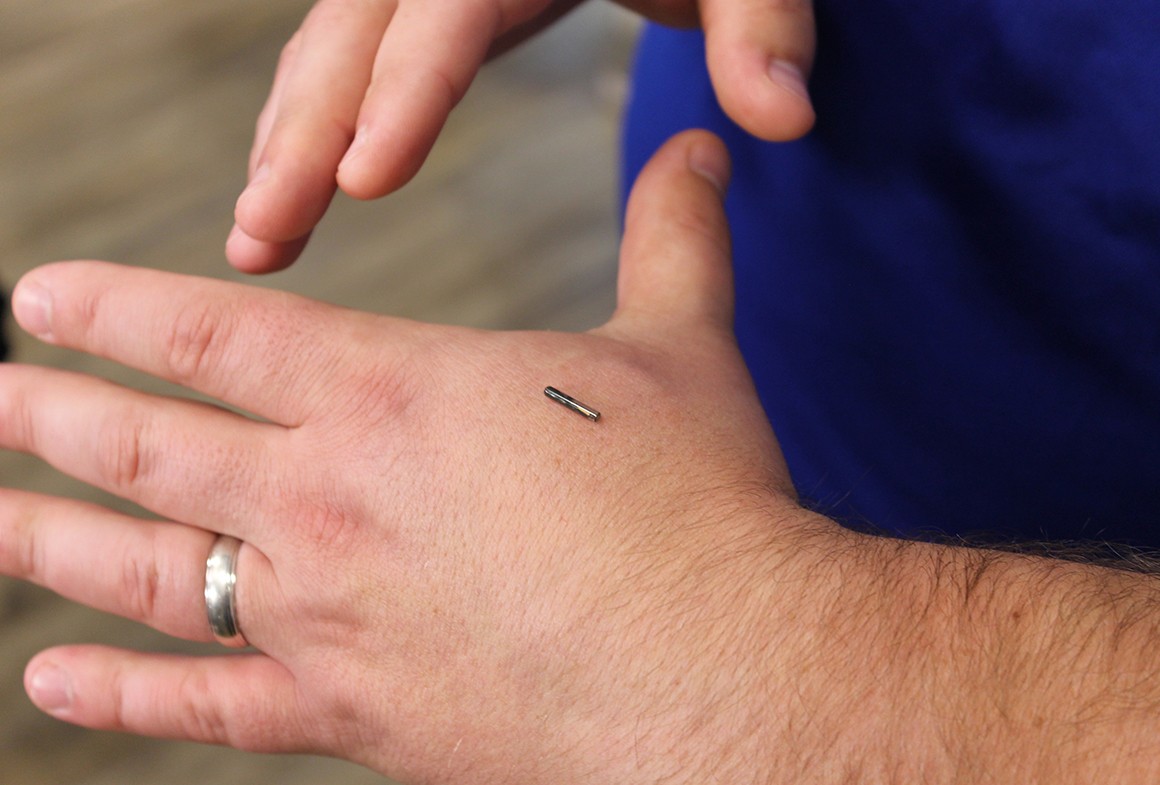And he causeth all, both small and great, rich and poor, free and bond, to receive a mark in their right hand, or in their foreheads:
And that no man might buy or sell, save he that had the mark, or the name of the beast, or the number of his name.
Revelation 13:16-17 (KJV)
The Mark of the Beast may be getting closer with the rapidly growing acceptance of implanted microchips.
In Sweden, cash is almost extinct
... and people implant microchips in their hands to pay for things
Few countries have been moving toward a cashless society as fast as Sweden. But cash is being squeezed out so quickly — with half the nation’s retailers predicting they will stop accepting bills before 2025 — that the government is recalculating the societal costs of a cash-free future.
“No cash accepted” signs are becoming an increasingly common sight in shops and eateries across Sweden as payments go digital and mobile. Source: Financial Post.
Swedish firm Biohax, which has plans to open a London office in London, is working with the state-owned Swedish rail firm Statens Järnvägar, to allow its passengers to travel via chip implants rather than train tickets. Source: The Guardian.
At another company, employees can pay for vending machine products with a wave of their hand thanks to a microchip implanted between the thumb and forefinger. The vending machine immediately deducts money from their account. Source: MIT Technology Review.
The RFID (radio-frequency identification) chips are said to make it easier to do things like get enter an office building, log on to computers, and buy food and drinks in the company cafeteria.
The chips are passive – they don’t use batteries – and instead get their power from an RFID reader when it requests data from the chip.
In 2016 RFID technology showed encrypted ID chips on vehicle licence plates could be read on vehicles 12 metres away and moving at 150kmh. Source: Electronic Specifier Automotive.
Some research also suggests that implanted chips are susceptible to security risks and increase the potential for identity theft given that it is relatively easy to hack a microchip implant. So employees could be subjected to something that actually threatens their personal security. Source: International Journal of Technology Assessment in Health Care.
Last year, Hampshire-based entrepreneur Steven Northam became the first person in the UK to be fitted with a microchip. Like Biohax, he is offering the service to businesses and individuals through his company, BioTeq.
"It can have a huge impact on society and business," he said. "In the future, we're all likely to have one." Source: Sydney Morning Herald.



No comments:
Post a Comment